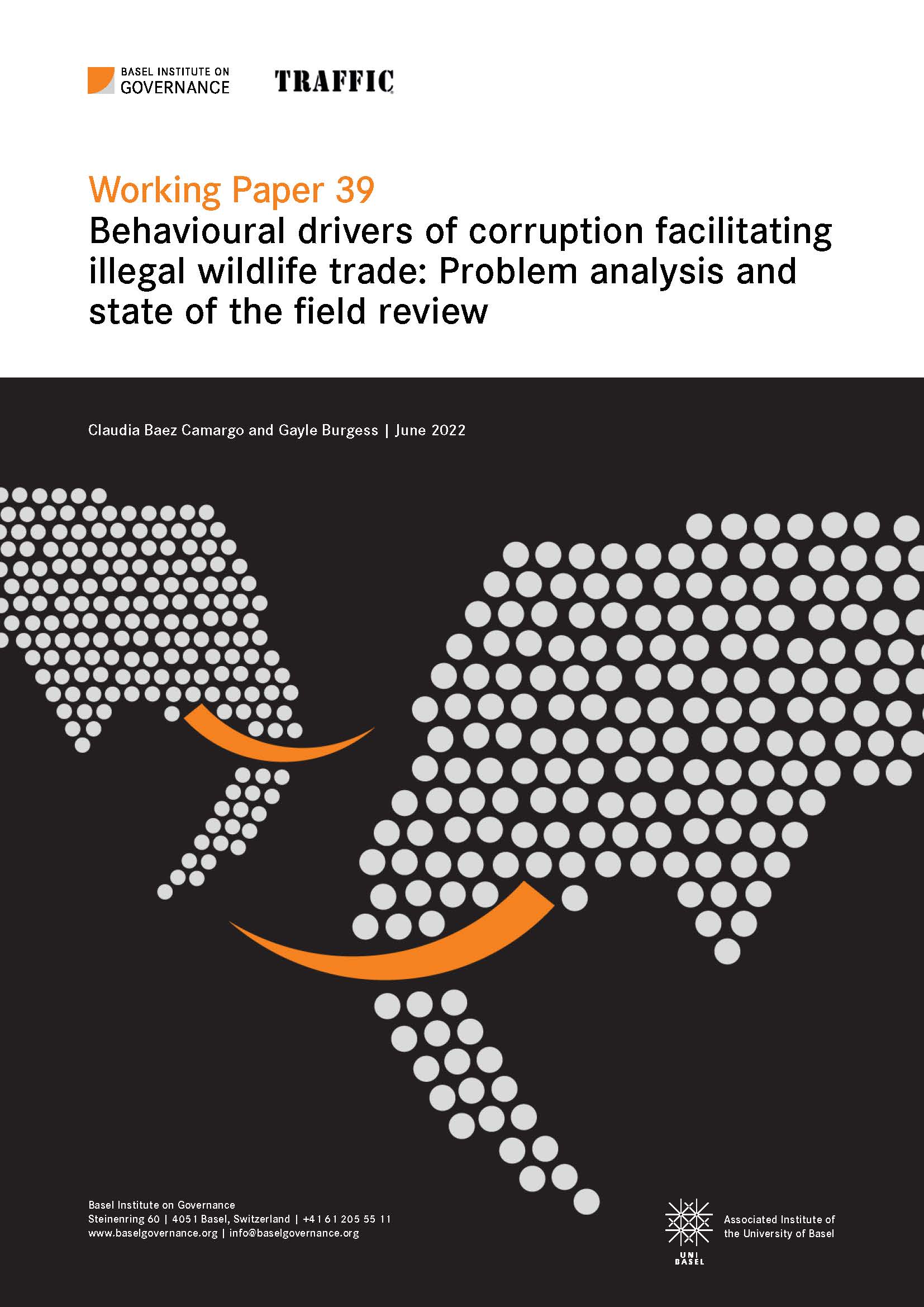Working Paper 39: Behavioural drivers of corruption facilitating illegal wildlife trade
Problem analysis and state of the field review
Keywords:
illegal wildlife trade, natural resource management, corruption, social norms, behavioural insights, anti-corruptionAbstract
This Problem Analysis is a review of the efficacy and opportunities for using social norm and behaviour change (SNBC) approaches to combat illegal wildlife trade (IWT) and other natural resource-related corruption.
Behavioural science is a rich and expansive field that has received prominent coverage in recent years for the promise it offers as a foundational yet underutilised approach to achieving biodiversity conservation. Extensive literature shows how SNBC initiatives can help combat diverse corruption problems, although for those related to natural resource management the evidence for doing so is sparse.
This report synthesises the available information and suggests the next steps to redress this current lack of evidence. It seeks to:
- Understand what SNBC approaches might or might not work in fighting corruption.
- Identify entry points for designing SNBC interventions that can effectively reduce corruption related to IWT.
This Analysis has been produced in association with the Targeting Natural Resource Corruption (TNRC) project. The TNRC project is working to improve biodiversity outcomes by helping practitioners to address the threats posed by corruption to wildlife, fisheries and forests. TNRC harnesses existing knowledge, generates new evidence, and supports innovative policy and practice for more effective anti-corruption programming. Learn more at tnrcproject.org.
This publication is made possible by the generous support of the American people through the United States Agency for International Development (USAID). The contents are the responsibility of the authors and do not necessarily reflect the views of USAID, the United States Government, or individual TNRC consortium members.

Downloads
Published
How to Cite
Issue
Section
License
Copyright (c) 2022 Basel Institute on Governance Working Papers

This work is licensed under a Creative Commons Attribution-NonCommercial-NoDerivatives 4.0 International License.

